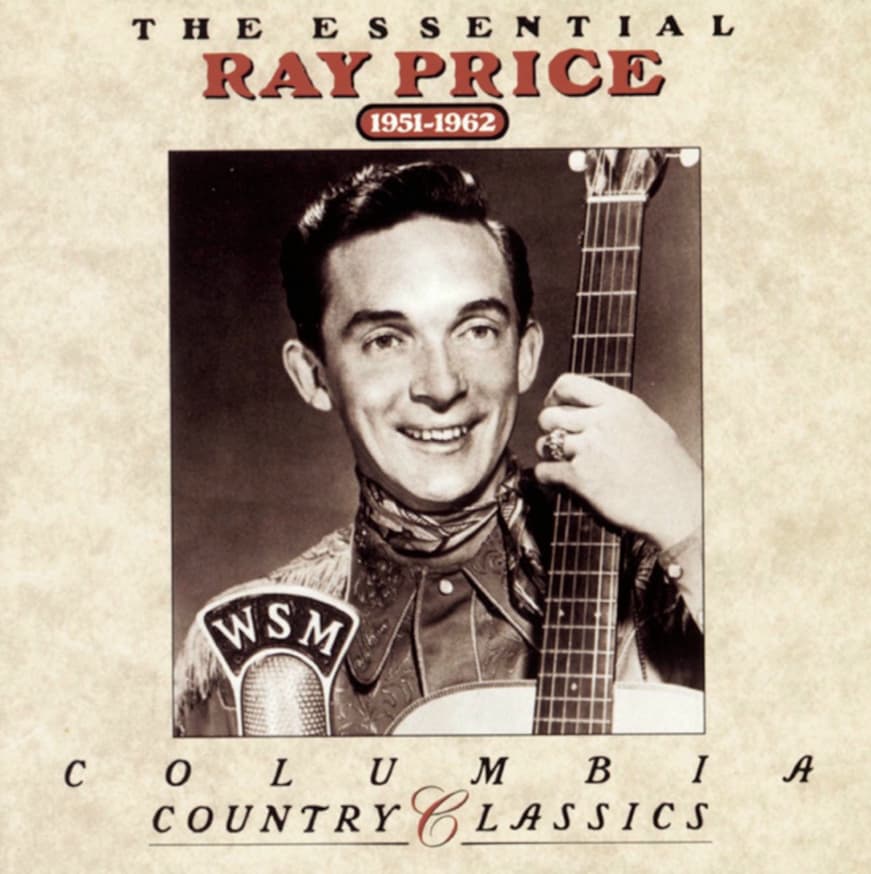
Ray Price’s “I’ll Be There (If You Ever Want Me)” is a melancholic masterpiece about unrequited love and enduring devotion.
The year was 1954, and the airwaves were dominated by the nascent sounds of rock and roll and the polished pop of the crooners. Yet, for those with a taste for something deeper, something with a lonesome ache that spoke directly to the heart, there was Ray Price and his unforgettable ballad, “I’ll Be There (If You Ever Want Me).” This wasn’t a song that blasted its way to the top with a catchy hook; it was a slow burn, a quiet and persistent presence that found its way into the soul of country music fans.
In an era when country music was still defined by its raw, unadorned emotionality, Price’s recording was a bridge between the honky-tonk sound of the past and the sophisticated “Nashville Sound” he would later help pioneer. It’s a song that captures a moment in time, a feeling that anyone who has ever loved someone from afar can understand. Released as a single on Columbia Records, the song’s chart performance was a testament to its quiet power. It reached an impressive #2 on the Billboard Country & Western Singles chart in the summer of 1954, a remarkable achievement that showed its resonance with listeners.
The story behind the song is one of collaboration and creative alchemy. It was co-written by the legendary Ray Price himself and the prolific songwriter Rusty Gabbard, with Price taking a significant role in its composition. The song’s simple, direct lyrics were its greatest strength, speaking volumes through their understated elegance. It tells the story of a man who is utterly devoted to a woman who is currently with another. There’s no bitterness or anger in his words, only a profound sense of resignation and a steadfast promise. He isn’t trying to break them up; he’s simply stating a fact: he’s waiting.
The genius of “I’ll Be There (If You Ever Want Me)” lies in its melancholic honesty. It’s a song about unrequited love, yes, but it’s also about something more enduring: the quiet, steadfast hope that one day, the person you love will realize their true feelings. The narrator isn’t a passive figure; he’s an anchor, a constant in a world of changing affections. The line, “I’ll be there if you ever want me,” is both a declaration of love and a heartbreaking acknowledgment that he may never be needed. This sentiment is what made the song so relatable to a generation that understood the pain of waiting and the bittersweet nature of love.
Listening to Price’s warm, buttery baritone on this track today is like flipping through an old photo album. It brings back a flood of memories—of jukeboxes in dimly lit honky-tonks, of late-night drives with the radio tuned to a static-filled country station, of dances with a hand on a stranger’s back, hoping for a connection. His voice, at once smooth and full of a palpable sadness, perfectly captures the song’s tone. It’s a performance that doesn’t just sing the words; it lives them.
The instrumentation is sparse but perfect—a gentle steel guitar that weeps and sighs, a subtle fiddle that adds a touch of mournful color, and a simple rhythm section that keeps the melody moving forward. This arrangement allows Price’s voice and the song’s poignant lyrics to take center stage, creating an intimate, almost confessional atmosphere.
“I’ll Be There (If You Ever Want Me)” is more than just a song; it’s a testament to the enduring power of classic country music. It’s a reminder that the most profound emotions are often expressed in the simplest terms. For those who grew up with it, the song is a touchstone, a musical time capsule that transports them back to a time of honest feelings and timeless melodies. It stands as a powerful and emotional landmark in Ray Price’s legendary career and in the annals of country music history, proving that a song doesn’t need to be loud to leave a lasting impression.